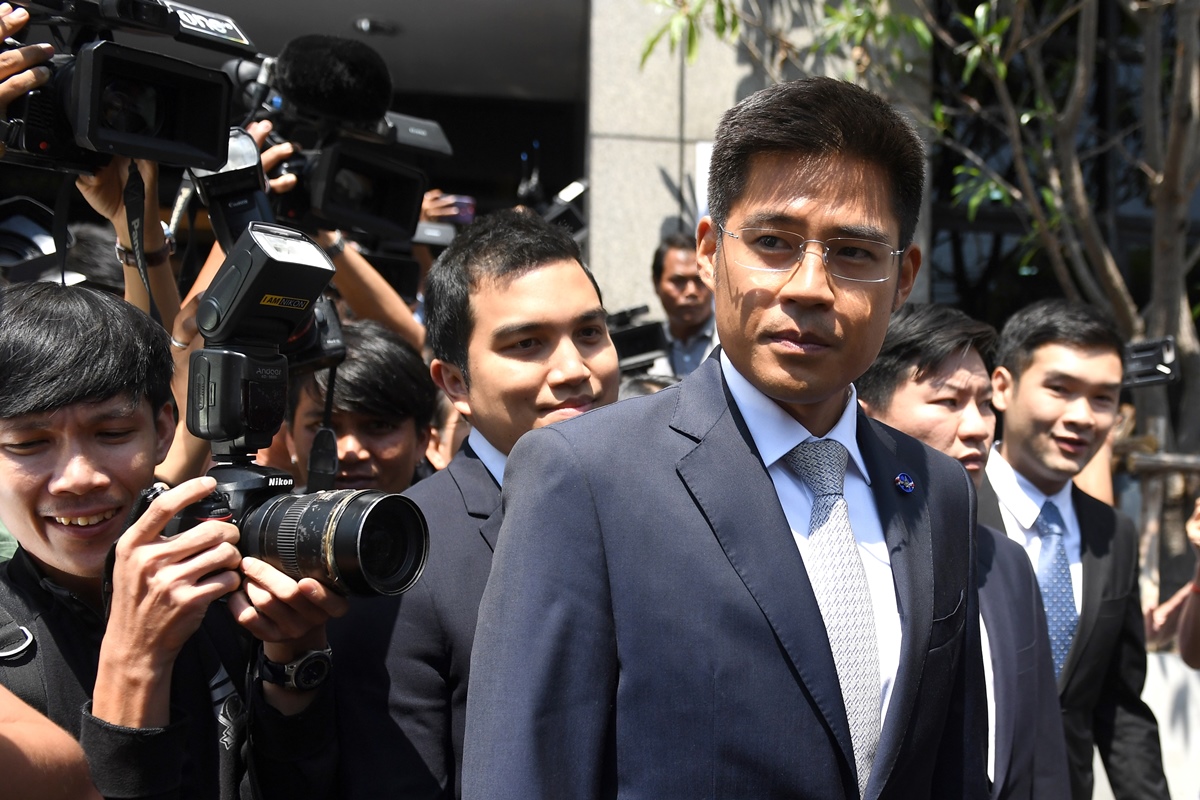Thai House votes down anti-coup motion
The incumbent government under Prime Minister Prayut Chan-o-cha was formed following a coup.
The essay towards a rediscovery of democracy might hit the reefs in the face of the challenge posed by the king and the cantonment and also, of course, the court.

Thai Raksa Chart leader Preechaphol Pongpanich (R) with other officials leave the party headquarters to appear before the Constitutional Court in Bangkok on March 7, 2019, for a court ruling. (Photo by Lillian SUWANRUMPHA / AFP)
Thursday’s ruling of Thailand’s constitutional court is as much a resounding message to the deposed Shinawatra clan as it is a reaffirmation of the certitudes of a constitutional monarchy. The judiciary has put the record straight on parties and politics in the Bangkok court and the position of the monarchy in the overall construct.
The court has dissolved the Thai Raksa Chart party which barely a fortnight ago had nominated Princess Ubolratana Rajakanya Sirivadhana Barnavadi for election as Prime Minister. That nomination, in itself, had caused a flutter in the roost ahead of the 24 March elections in a fractious land.
The party is closely aligned with Thaksin Shinawatra, the ex-PM who met his political eclipse in 2006. But more than the political alignment, the opposition to Ubolratana’s nomination ~ and ambition ~ had emanated from within the palace itself.
Advertisement
Not least the king’s damning decree, stating that Ubolratana, his elder sister, did not have his approval to contest. He declared it “improper and highly inappropriate” for her to step into politics, forcing Thai Raksa Party to issue an apology and for Ubolratana to be disqualified from running by the Election Commission. The resultant turmoil, that had centred around the elections and the monarchy, has now reached its logical conclusion with a ban on the party.
Nay more, its members face a ten year bar on entry into politics. The court ruled that Ulbolratana’s nomination was a “devious scheme” masterminded by Thaksin Shinawatra and designed to give Thai Raksa Chart a political advantage.
The dissolution of the party comes less than three weeks before the election. Indubitable is the precedence accorded to the monarchy in a constitutional democracy. But the dynamics of the country’s constitutional development have not been as smooth as in Bhutan.
The decision of the court is a blow to supporters of pro-democracy parties, and those loyal to the exiled Shinawatra, who were hoping that Thai Raksa Chart would help prevent a promilitary coalition from taking control of Parliament.
The Constitution stipulates that no member of the Thai royal family can hold political office, but Ubolratana renounced her titles in 1972 when she married an American, meaning that she legally holds no more privileges than an ordinary citizen.
Markedly, this is the first time that the country’s military has formed a political party to run in the election. Its objective is to hold on to power even after the return of democracy, a faint echo of the power structure in Myanmar to the north.
Clearly, the monarchy and the military will continue to play a pivotal role in Thailand’s narrative. The essay towards a rediscovery of democracy might hit the reefs in the face of the challenge posed by the king and the cantonment and also, of course, the court. It is a pregnant fortnight before the elections. At stake are the freedom of association and expression.
Advertisement